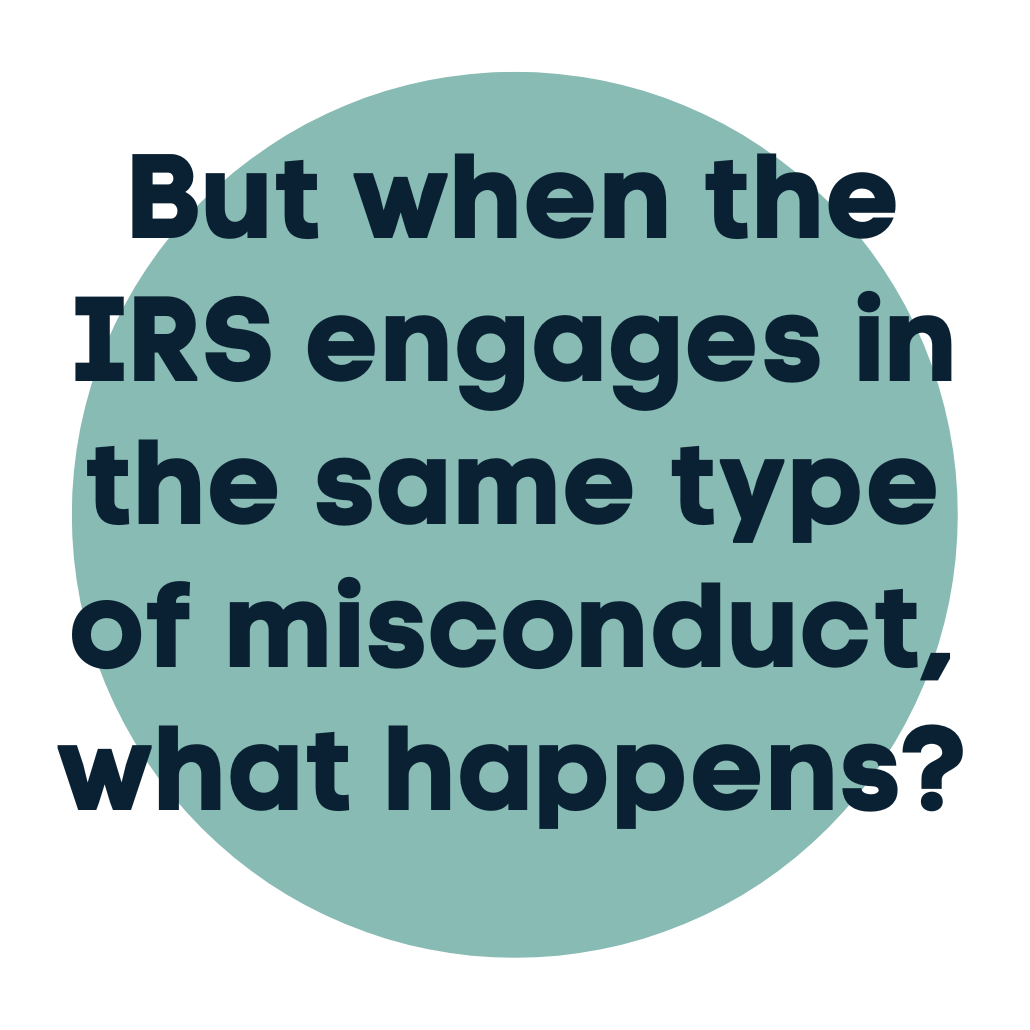
An IRS Double Standard: Backdating Docs While Demanding Perfection from Taxpayers
The Internal Revenue Service (IRS) was recently caught backdating approval documents in taxpayer penalty assessments.
This shocking revelation, reported by outlets such as The Hill and Bloomberg Law, highlights the troubling double standard between how government agencies and individual citizens are treated when it comes to taxes and financial accountability.
In February, top Congressional lawmakers sent IRS Commissioner Daniel Werfel a scathing letter, demanding greater transparency and accountability over the issue.
In the letter, Jason Smith, Chairman of the House Committee on Ways and Means, and David Schweikert, Chairman of the Subcommittee on Oversight, demand answers from the IRS about the extent of the wrongdoing and what is being done to prevent future malfeasance.
@atltaxlawyers Did you hear about the IRS getting caught backdating documents and losing out on a $15 million penalty? It’s a reminder that not even the government is above the law.⚖️ #Alyssawhatley #taxrescue101 #taxtok #backtax #taxlaw #taxlawyer #taxattourney #taxprofessional #taxresolution #taxrelief #taxdebt #taxnews #irs #freetax #taxseason2023 #taxaudit ♬ original sound – Alyssa Whatley ⚖️ Tax Attorney
Background on the IRS Backdating Issue
Both reported instances of IRS wrongdoing involved land conservation easements.
In the earlier case, LakePoint Land II LLC had formed a conservation easement, donated land development rights to a nonprofit, and claimed a $38 million deduction.
The IRS rejected the deduction and levied a penalty of $15.2 million, which LakePoint challenged. At issue is how and when the IRS approved those penalties. The Internal Revenue Code requires an IRS agent to obtain supervisory approval of penalties before such penalties are assessed.
In the case of LakePoint, an IRS agent first prepared a penalty consideration “lead sheet” in July 2016. The lead sheet was later amended to include additional penalties. The agent’s manager signed the lead sheet on February 10, 2017, but improperly backdated her signature to July 16, 2016.
The IRS is accused of misleading the U.S. Tax Court for months about the backdating. After the issue came to light, the court ordered the agency to pay LakePoint’s attorney fees and other expenses. And, in a rare move, the IRS agreed to forgo the entire $15.2 million penalty as part of a settlement.
In a second land conservation case, an IRS agent emailed his manager in July 2021 indicating that penalties would likely be assessed against three business partnerships. The email did not specify which penalties would be applied, or why.
The manager responded via email, approving the penalties, again without specifying penalties or the basis for the approval.
In March 2022, the IRS agent submitted three penalty lead sheets which his supervisor backdated to July 2021, coinciding with their original email exchange.

A ‘Rules for Me, But Not for Thee’ Scenario
As a tax lawyer, I find it appalling that IRS employees would resort to such unethical and likely illegal tactics to inflate taxpayer penalties.
If a private citizen or their accountant backdated financial documents and presented them in court, they would almost certainly face severe civil or even criminal penalties. They could be fined, lose professional licenses, or even be sentenced to jail time.
But when the IRS engages in the same type of misconduct, what happens?
Apparently not much, beyond a tepid apology and vague promises to investigate the root causes.
As it stands, we have no visibility into any real accountability or consequences for the IRS supervisors who backdated official records. This blatant double standard is corrosive to public trust in the tax system and government institutions as a whole.
Just One Example of Failed Accountability
The backdating incidents are far from the only example of a government office being held to a lower standard than the citizens they serve.
The Pentagon, for example, consistently fails audits (six years in a row) and is unable to account for roughly $1.9 trillion in assets.
Meanwhile, the IRS itself regularly issues billions in improper payments — an estimated $247 billion in fiscal year 2022 alone.
If an individual taxpayer or business failed an audit, they would face severe penalties. Billions in misallocated funds would trigger an aggressive investigation.
But when the IRS fails to manage its own books properly, there are seemingly no consequences. The double standard is glaring.
This two-tiered justice system — with one set of rules for the government and another for taxpayers — is simply unacceptable in a democracy based on equal treatment under the law.
It stirs up distrust and resentment toward the very institutions we rely on to fairly administer tax laws and other essential government functions. If unchecked, it threatens to undermine voluntary compliance with the tax code.

The Action We Need
IRS Commissioner Werfel has downplayed the backdating improprieties as “extremely limited” bad behavior.
But if the agency was willing to engage in such conduct multiple times, and hide it in court, it raises serious questions about the integrity and culture of the organization as a whole. What other misconduct is occurring that simply hasn’t been uncovered yet?
At a minimum, the IRS must commit to full transparency, publicly detail the extent of the document backdating issues, and terminate employees involved in the deception.
Longer-term, the IRS must undertake serious reforms to address its chronic financial mismanagement and rebuild trust with the taxpayers it serves. Legislation to strengthen oversight of the agency, create harsher penalties for misconduct, and guard against violations of taxpayer rights should be on the table.
Most of all, the IRS and Congress must recommit to a tax system that treats everyone the same — government officials and average citizens alike. The backdating scandal has made it clear we have a long way to go to reach that ideal. But it’s an ideal we must strive toward, because nothing less than the credibility of our democracy and civic institutions are at stake.


